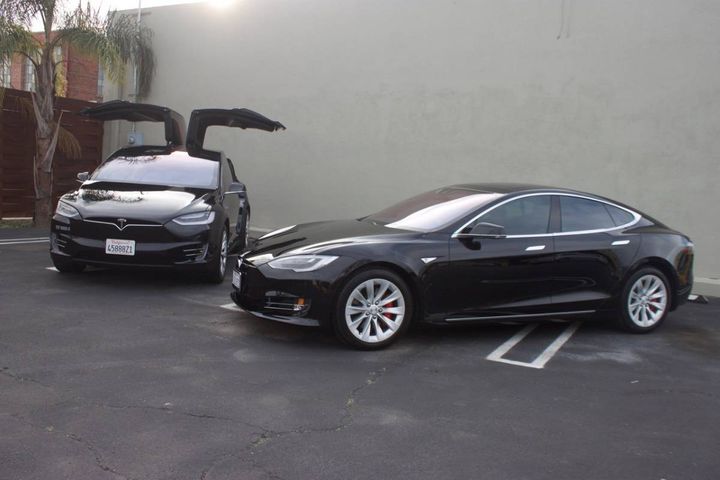About Toyota Toyota (NYSE:TM) has been a part of the cultural fabric in North America for more than 60 years, and is committed to advancing sustainable, next-generation mobility through our Toyota and Lexus brands, plus our more than 1,800 dealerships. Toyota directly employs more than 48,000 people in North America who have contributed to the… Continue reading @Toyota: Toyota Indiana – Driving the Future
Tag: Toyota
@Toyota: Toyota Tsusho Invests in May Mobility, a leader in autonomous vehicle technology and shuttle operations- Contributing to the Creation of a Safe and Comfortable Mobility Society through Autonomous Vehicle Technology –
Toyota Tsusho Corporation (“Toyota Tsusho”) announced today that it has executed an investment in Series C Funding Round of May Mobility, Inc. (“May Mobility”), an Ann Arbor, Michigan-based startup that is developing autonomous vehicle technology and operating autonomous shuttle services*1 in North America and Japan. This funding round was led by Mirai Creation Fund II… Continue reading @Toyota: Toyota Tsusho Invests in May Mobility, a leader in autonomous vehicle technology and shuttle operations- Contributing to the Creation of a Safe and Comfortable Mobility Society through Autonomous Vehicle Technology –
@Toyota: Toyota is Conducting a Noncompliance Recall Involving Certain 2021 Toyota Venza Hybrid Vehicles
PLANO, Texas (Jan. 26, 2022) – Toyota is conducting a noncompliance recall involving certain model year 2021 Venza hybrid vehicles in the U.S. Approximately 42,000 vehicles are involved in this recall. The rear turn signal lamp bulbs in the involved vehicles can temporarily become dim or deactivate after exposure to conditions such as heavy rain or… Continue reading @Toyota: Toyota is Conducting a Noncompliance Recall Involving Certain 2021 Toyota Venza Hybrid Vehicles
@Toyota: Adjustments to Domestic Production in January and in February (as of January 26)
Due to the shortage of parts supply caused by the spread of COVID-19 at our supplier in Japan, on January 21 we announced additional suspensions of domestic plant production for completed vehicles and also our revised production plan for February due to the shortage of semiconductor-related parts. Today, Toyota announces additional suspensions of domestic plant… Continue reading @Toyota: Adjustments to Domestic Production in January and in February (as of January 26)
New Electrified Vehicle Sales Hit Record in Q4 2021
On the EV side, Tesla is still the dominant player, with 72% share of the EV market. That is down from near 80% in 2020, but Tesla still delivered significant 71% year-over-year growth in a tough year. Tesla didn’t only dominate the EV market, Tesla dominated the overall luxury market, outselling Audi, BMW, Lexus, and… Continue reading New Electrified Vehicle Sales Hit Record in Q4 2021
MAY MOBILITY ACCELERATES GROWTH WITH SERIES C FUNDING
ANN ARBOR, Mich., Jan. 26, 2022 /PRNewswire/ — May Mobility, a leader in the development and deployment of autonomous vehicle (AV) technology, today announced the initial closing of its Series C round of funding with an investment of $83 million led by Mirai Creation Fund II – a SPARX Group Co., Ltd. managed fund that is renowned… Continue reading MAY MOBILITY ACCELERATES GROWTH WITH SERIES C FUNDING
@Toyota: Adjustments to Domestic Production in January and in February (as of January 25)
Due to the shortage of parts supply caused by the spread of COVID-19 at our supplier in Japan, on January 21 we announced additional suspensions of domestic plant production for completed vehicles and also our revised production plan for February due to the shortage of semiconductor-related parts. Today, Toyota announces additional suspensions of domestic plant… Continue reading @Toyota: Adjustments to Domestic Production in January and in February (as of January 25)
Toyota plans to make record 11m cars in fiscal year starting April
Go to Source
Ford to pause 2022 Maverick orders to meet soaring demand for $20K pickup
Ford Motor Co. will temporarily stop accepting all orders on its all-new 2022 Maverick compact pickup truck — both hybrid and gasoline versions — until summer, the automaker confirmed Monday. Ford told dealers in a letter emailed Monday that orders for a gas-powered Maverick will be accepted through Thursday at close of business. Ford hit pause on… Continue reading Ford to pause 2022 Maverick orders to meet soaring demand for $20K pickup
Tesla now operates the most productive car factory in the US
Tesla is now operating the most productive car factory in the US, according to a new report tracking all US auto factories. Just a few years ago, many players in the auto industry couldn’t imagine that Tesla could become a major manufacturer. After all, it was the first US car startup to not go bankrupt… Continue reading Tesla now operates the most productive car factory in the US
